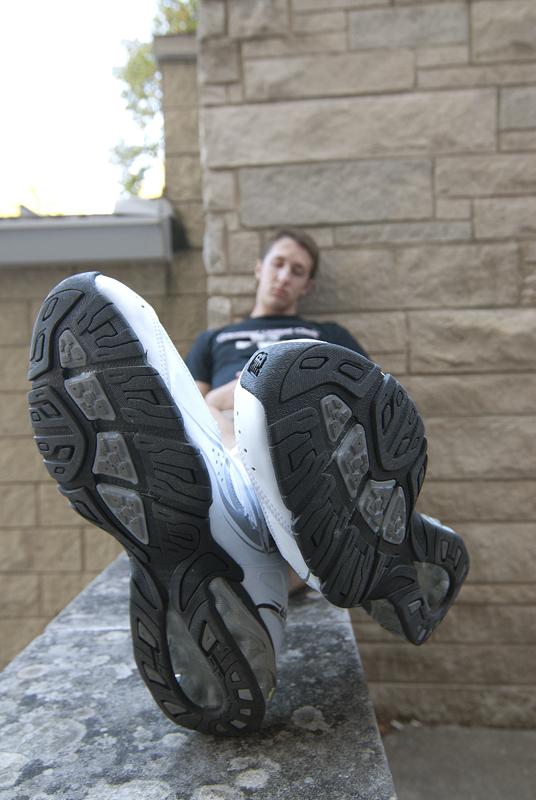Everyone knows the feeling — the feeling of sitting in class and slowly nodding off. The professor’s voice slowly trails away as sleep inches nearer.
As freshman Jimmy Michaels sits in his class each week, he frequently experiences this feeling. Most would write this off as simply a boring lecture or a warm classroom. Michaels knows those are not the main reasons behind his drowsiness. Michaels knows he is sleep deprived.
“When I go to my 9:30 a.m. class, I always find it hard to stay awake and focused for the entirety of the class,” Michaels said. “Even in my 11 a.m.s I doze off sometimes.”
For Michaels, balancing 15 credit hours, being a candidate for a fraternity and working part-time at KOMU leaves him little time to sleep. Michaels requested the fraternity he is pledging remain unnamed.
“In Greek Life, we have pomping and other activities that keep us up late into the night,” Michaels said. “I’m also in the Homecoming dance so that also takes time. With dance team and intramural sports, it just adds to the exhaustion.”
A main reason for lack of sleep in the Greek community is the amount of homework they are given each night combined with the rapidly approaching centennial Homecoming celebration.
“The more I have to pomp, the later I have to stay up to do my homework,” freshman Sarah Berger said. “I don’t get a lot of sleep at all.”
Berger is a member of Gamma Phi Beta.
Amy Robinson is a freshman member of Delta Delta Delta and spends most of her free time studying.
“I’m usually at Ellis Library or the student center or a combination of the two from about six at night until one or two in the morning every day,” Robinson said.
Sleep deprivation doesn’t only occur in the Greek Life community. Junior Michael Henson is among the many sleep-deprived students at MU that get less than five hours of sleep each night.
“The main reason is I have generalized anxiety disorder,” Henson said. “I also have major depressive disorder. Both of which have gotten in the way of my sleep in the past three years. It’s only gotten worse since I came to college.”
Henson said he knows he has not done much to help himself become less sleep deprived.
“I don’t really take many measures to get enough sleep,” Henson said. “I’m taking 18 credit hours so I’m not even doing myself a big service in the way of getting more sleep or allowing myself to get more sleep.”
Henson said he sleeps between three and four hours a night on average, and part of that is the hours of homework he has.
“I probably have a good four hours of homework, but I try to limit myself to about two and a half to three hours,” Henson said. “Any more than that and I’m not really producing quality work anymore.”
Studies have shown common symptoms of sleep deprivation are illness, irritability, loss of appetite, lack of focus, exhaustion and memory loss.
Berger experienced several of these symptoms since classes started.
“I feel sick,” Berger said. “I have to force myself to eat sometimes, and I’m not as focused as I should be.”
Robinson also experienced a number of symptoms.
“I’m suffering from Bronchitis right now, and I think that has a lot to do with my sleep and stress levels,” Robinson said. “I think my illness is a symptom.”
Along with her illness, Robinson also experienced exhaustion.
“I’m tired in class. During the first couple of weeks of school I could barely stay awake,” she said. “I would literally find myself falling asleep.”
Joanna Zaimes is another freshman whom considers herself to be sleep deprived. Zaimes sleeps around six hours each night and completes anywhere from three to four hours of homework every afternoon.
“In my history lecture class I’ve started nodding off a few times,” Zaimes said.
Zaimes is one of the many MU students who have attempted to stay up all night studying before an exam. Although she did not succeed in staying up all night, she still felt the repercussions the next day.
“It was terrible,” Zaimes said. “I felt like I couldn’t think well enough.”
Manjamalai Sivaraman, a neurologist at University of Missouri Health Care, recommends that students get at least eight hours of sleep each night.
Sivaraman says at least one third of a person’s life should be spent sleeping.
Sivaraman offered several pieces of advice to students who are sleep deprived. He suggests students avoid both smoking and alcohol at night and to get at least 30 minutes of exercise each day.
“Don’t ignore the sleep needs,” Sivaraman said. “Many things can keep you awake so you should tell yourself, ‘It’s time to wind down.’”
He also acknowledges that every person is different and that some people have different sleep needs than others.
“People react differently to sleep deprivation,” Sivaraman said. “Everyone should listen to their own body.”
Henson has taken the measures to go and see a doctor about his sleep deprivation.
“I’ve been seeing a psychologist for about three years,” he said. “I see my family doctor once a month to go over everything. It has helped me understand why it’s happening more. But it hasn’t actually helped me get more sleep.”
Other students said they don’t feel their sleep deprivation is cause to see a doctor.
“I’m still the same me,” Michaels said. “Just a little drowsier.”
Sivaraman recommends students see a doctor if they feel that their sleep deprivation is getting out of hand.








